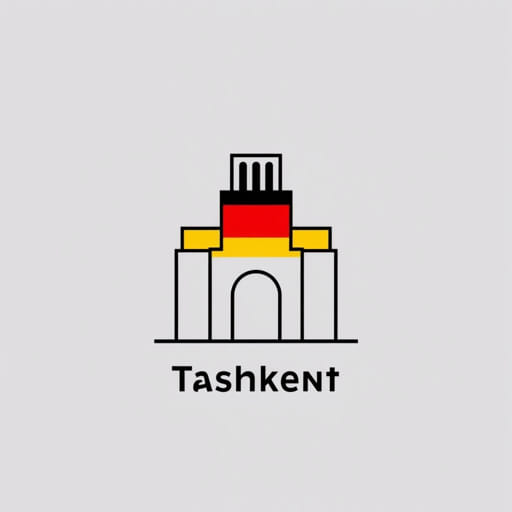Located in the heart of Central Asia, the Embassy of Germany in Tashkent plays a vital role in fostering diplomatic, cultural, and economic relations between Germany and Uzbekistan. As the capital city of Uzbekistan, Tashkent serves as a strategic location for Germany to maintain its presence in the region. The embassy acts as a bridge that connects people, governments, and institutions across both nations. Understanding the responsibilities, services, and significance of the German Embassy in Tashkent is crucial for those involved in international relations, travel, education, or business.
Overview of the Embassy of Germany in Tashkent
The German Embassy in Tashkent serves as the official diplomatic mission of the Federal Republic of Germany in Uzbekistan. Its primary function is to represent German interests while also providing support and assistance to German citizens living in or visiting Uzbekistan. The embassy engages in political dialogue, promotes cultural exchange, and facilitates economic cooperation between the two countries.
Location and Accessibility
Strategically located in a central area of Tashkent, the German Embassy is easily accessible for both locals and foreigners. The embassy’s proximity to government buildings, educational institutions, and major business centers enhances its operational efficiency and encourages regular interaction between German and Uzbek stakeholders.
Consular Services
One of the primary roles of the Embassy of Germany in Tashkent is to offer consular services. These include a wide range of assistance for both German and Uzbek citizens:
- Visa applications and processing for travel to Germany
- Assistance with passport renewal and documentation for German citizens
- Support in legal and emergency situations involving German nationals
- Registration of births, marriages, and deaths
- Notarial services and authentication of documents
Visa and Immigration Services
For many Uzbek citizens, the German Embassy in Tashkent is the primary point of contact when planning to visit, study, or work in Germany. The embassy provides guidance and processing for several categories of visas including:
- Schengen tourist and business visas
- Student and research visas
- Family reunification visas
- Work and employment visas
The application process is transparent and requires detailed documentation. The embassy encourages applicants to start the process early, especially during peak seasons. Appointments are generally scheduled online, and interviews are conducted at the embassy premises in Tashkent.
Promoting Economic Cooperation
Economic diplomacy is a core function of the German Embassy in Tashkent. Germany is one of the leading trade partners of Uzbekistan in Europe, and the embassy actively facilitates business partnerships and investment opportunities. This is achieved through:
- Hosting trade delegations and business forums
- Providing information on market opportunities in Germany
- Connecting German companies with Uzbek counterparts
These efforts help both countries explore mutual benefits, improve trade volume, and create sustainable development in various sectors such as energy, technology, and agriculture.
Cultural and Educational Exchanges
One of the most dynamic aspects of the embassy’s mission is its focus on cultural diplomacy. The German Embassy in Tashkent supports numerous cultural initiatives to foster mutual understanding and appreciation between the people of Germany and Uzbekistan. These include:
- Language programs and support for learning German
- Scholarship programs for Uzbek students
- Collaborations with universities and academic institutions
- Support for German cultural events, art exhibitions, and performances
The Goethe-Institut, closely affiliated with the embassy, plays a central role in promoting the German language and cultural activities. Educational exchange programs sponsored by the embassy give Uzbek students the opportunity to study in Germany and vice versa, strengthening long-term ties between both societies.
Political and Strategic Engagement
The Embassy of Germany in Tashkent is actively engaged in fostering political dialogue between the two nations. By maintaining strong diplomatic ties, the embassy contributes to regional stability and mutual understanding. German diplomats often collaborate with Uzbek government officials on issues such as governance, human rights, regional security, and climate change.
Germany values Uzbekistan as a strategic partner in Central Asia, particularly in its efforts to support peace, development, and sustainable growth in the region.
Support for German Citizens
The German Embassy is a vital lifeline for German citizens in Uzbekistan. Whether traveling for business, tourism, or residing in the country, German nationals can rely on the embassy for a wide range of services. In times of crisis such as natural disasters, political unrest, or medical emergencies, the embassy provides critical assistance including:
- Emergency travel documents
- Medical and legal referrals
- Coordination with local authorities
- Family communication and repatriation assistance
Collaboration with Other Diplomatic Missions
The Embassy of Germany in Tashkent frequently collaborates with other embassies and international organizations in Uzbekistan. These joint efforts include development aid programs, human rights initiatives, environmental projects, and support for democratic governance.
Such cooperation ensures a multilateral approach to shared challenges and reinforces Germany’s commitment to international solidarity.
Staying Connected
Communication is key for any embassy, and the German Embassy in Tashkent makes sure to maintain open channels with the public. Through public announcements, official statements, and informational materials, the embassy keeps both German and Uzbek citizens informed about important updates.
In an increasingly digital world, the embassy also leverages social media platforms to connect with the community, share event information, and provide quick updates on services and emergencies.
The Embassy of Germany in Tashkent is more than just a diplomatic mission it is a center of dialogue, cooperation, and cultural exchange. It plays a vital role in enhancing bilateral relations between Germany and Uzbekistan across various domains. From processing visas to supporting German citizens, encouraging economic ties, and promoting cultural understanding, the embassy remains a cornerstone of Germany’s presence in Central Asia. Its continued efforts strengthen not only diplomatic ties but also the shared vision of progress, partnership, and mutual respect.
